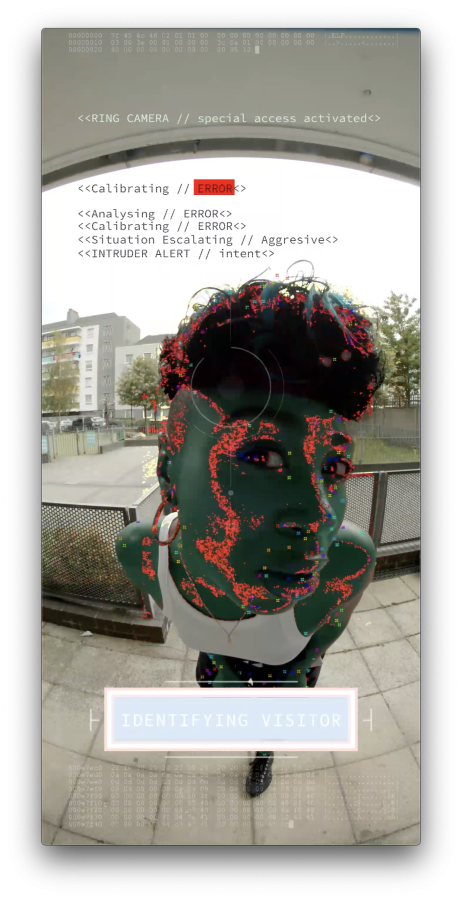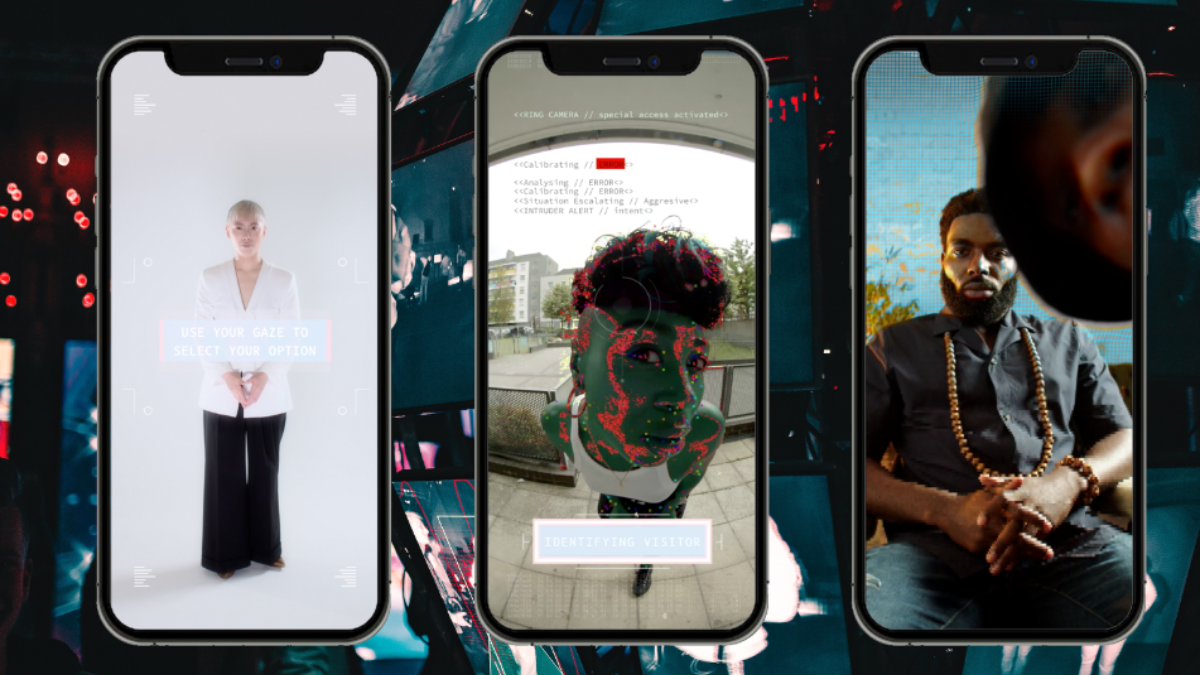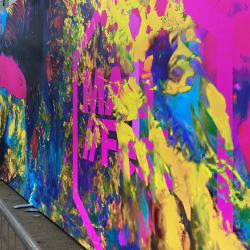This is part one of a two-part series from the 2023 BFI London Film Festival expanded exhibition.
It’s October 2023. In the next hour, I’ll transport to 1950s Montgomery, Alabama, to meet Claudette Colvin — a 15 year old girl who fought segregation laws in America. Forty-five minutes later, I’ll head to the dystopian future to try to obtain citizenship in a society ruled by unchecked surveillance.
This year’s BFI London Film Festival expanded exhibition gave audiences a look into the past, present and future with 14 immersive art and extended reality experiences from around the world. Featuring British and international artists, filmmakers and creative teams, this year’s programme offered audiences a vast diversity of approaches to storytelling at the cutting edge of screen technology.
Among them were Tania de Montaigne’s Colored and Karen Palmer’s Consensus Gentium.
MediaCat Magazine recently spoke to both Tania de Montaigne and Karen Palmer about their exhibitions, how technology is reshaping storytelling, and what this means for the future of art.
In part one of this two-part series, we take a look at the future of surveillance with Consensus Gentium creator Karen Palmer.
For part two with Tania de Montaigne, head here.
Participant or dissident?
Created by Karen Palmer, Consensus Gentium delves into the ramifications of artificial intelligence in a society ruled by unchecked surveillance. Integrating facial detection and AI to transport us into this new world, our compliance or dissidence is measured through the eyes of the device’s front-facing camera, providing an unsettling glimpse into a dystopian future.
Could you share some insights into how this interactive smartphone film delves into the implications of AI technology and its connection to race, bias, and social justice?
Consensus Gentium (Latin for If everyone believes it, it must be true) is an emotionally responsive film designed to be experienced on a mobile phone. Set in a future of surveillance and biased AI, the film watches you back, then the narrative branches in real time depending on your eye gaze.
It is a powerful exploration into the implications of today’s AI technology. It is an interactive film that integrates cutting-edge facial detection and AI, which transports audiences on a unique quest to discover what could come about if we succumb to unchecked surveillance. Through a smartphone, participants are tasked to obtain increased mobility to visit their sick Nana through a government surveillance-based Global Citizen App.
Through various tests, the participant’s receptivity towards dissidence or compliance is calculated by monitoring the data from their conscious and subconscious eye gaze interactions by the devices’ front-facing camera. While various characters interact with the participant through the smartphone to reflect the consequences of their decisions.



Consensus Gentium integrates cutting-edge facial detection and AI to create an emotionally responsive experience. How do you envision technology like this impacting our understanding of privacy, particularly in the context of increasing surveillance?
Consensus Gentium is an interactive experience designed to drive discussion about data privacy, unconscious biases and the power of technology. Through the immersive storytelling experience, participants are placed at the centre of a narrative that encourages them to ask questions around how their own personal data can be used responsibly. Consensus Gentium explores the impact of AI and technology on societal structures, using immersive experiences to let participants experience the future today in order to experience how biased AI networks and technologies will impact marginalised groups.
Interactive storytelling has the potential to engage audiences deeply with complex topics. What inspired you to use this medium to explore race-related issues, unconscious biases, and technology’s influence on society?
Consensus Gentium is an emotionally responsive film designed to be experienced on a mobile device, tapping into the intimacy and authenticity of your smartphone features and the world to create a uniquely realistic experience.
By utilising a smartphone as the platform, it takes art and these vital themes out of the more privileged museum and art spaces and democratises the Arts. It is bringing the immersive experience to the masses, into diverse communities, including disenfranchised and hard to engage with youth.
How do you hope Consensus Gentium will contribute to the ongoing discussions around data privacy and the ethical use of AI in our society?
I hope to encourage widening public access to emerging technologies such as AI and to open up the debate to include everyone. That may lead to open-source tools that can empower diverse communities with a new generation of technologies. By broadening the debate around AI, I hope that awareness leads to public pressure influencing policy direction in the realms of AI governance and transparency. This agenda is an extension of the project, with an emphasis on democratic control to the user, to the community, and to the citizen.
Featured image: Consensus Gentium































